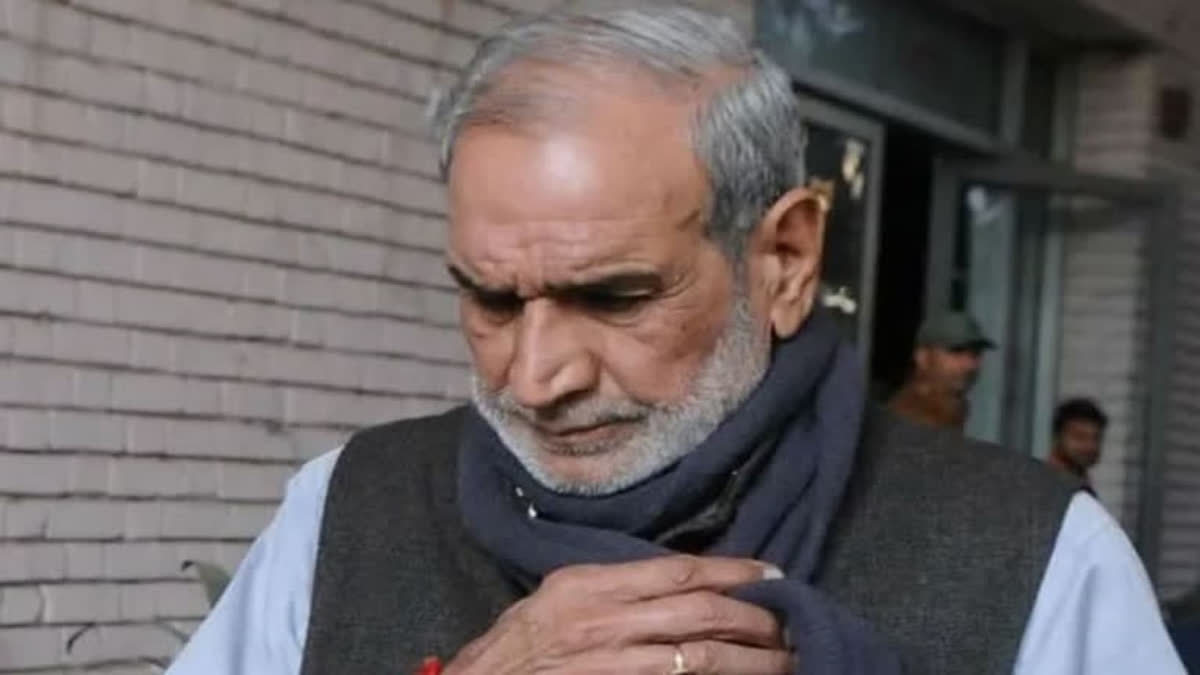New Delhi: The prosecution on Tuesday sought death penalty for former Congress MP Sajjan Kumar in a murder case related to the 1984 anti-Sikh riots, saying the crime was committed in a "brutal and diabolical manner". The prosecution said the case was "graver than the Nirbhya case" of 2012 in a written submission filed before special judge Kaveri Baweja.
"The present case is graver than Nirbhya case as in Nirbhya case, a young woman was targeted but in the present case, people of a particular community were targeted," it said. The minimum punishment under law for the offence of murder is life imprisonment.
The judge deferred the matter to February 21 after the counsel for Kumar sought time to argue on the matter, informing the court that the lawyer were abstaining from work on Tuesday in protest against Advocate Amendment Bill, 2025. Senior advocate H S Phoolka, appearing for the complainant, supported the prosecution's demand of death penalty and sought time to argue the matter.
Kumar is currently lodged in Tihar Jail. The prosecution said there was something uncommon in the case, arguing the "aggravated circumstances outweighed the mitigating circumstances" and the case fell in the "rarest of rare case" category. Kumar, along with the mob, targeted the particular community people without provocation, it added.
The prosecution argued four "helpless women" without any provocation were badly beaten and a young man aged about 18 and a man aged about 50 years showed no provocation but were burnt alive in front of their family members. The murders of Jaswant Singh and Tarundeep Singh, said the prosecution, were committed in an "extremely brutal, diabolical manner so as to shock the collective conscience of the society".
"The impact on the psychology of the survivor victims can be seen from their demeanor recorded during their testimonies, even after 39 years, they were inconsolably weeping. Serious bodily and mental harm were caused to such women... There was forced and traumatised displacement of all survivor victims," it said.
The court was informed by the prosecution that the impact and magnitude of the crime was so enormous that it was a crime against community and involved genocide of the members of a particular community. "The incident of this kind, break entire fibre of trust and harmony amongst communities, thereby, severely effecting the knitting and assimilation of different religious or social groups," it added.
Kumar was said to be a people representative, someone who supposed to help people but "he openly broke the rule of law", argued the prosecution. It pointed out Kumar was convicted for a similar crime. Jaswant Singh and his son Tarundeep Singh were killed on November 1, 1984. Though Punjabi Bagh police station registered the case initially, a special investigation team later took over the investigation.
According to the prosecution, a huge mob, armed with deadly weapons, resorted to large-scale looting, arson and destruction of properties of Sikhs to avenge the assassination of former Prime Minister Indira Gandhi. The mob attacked the house of the complainant, who is Jaswant's wife, killing the men aside from looting articles and setting their house ablaze, the prosecution claimed.
According to a report of Nanavati Commission, constituted to probe the violence and its aftermath, there were 587 FIRs filed in Delhi in relation to the riots that saw killings of 2,733 people. Of the total, about 240 FIRs were closed by police as "untraced" and 250 cases resulted in acquittal.
Only 28 cases of 587 FIRs resulted in convictions, in which about 400 persons were convicted. About 50 were convicted for murder, including Kumar. Kumar, an influential Congress leader and an MP at the time, was accused in a case over the killings of five persons in Delhi's Palam Colony on November 1 and 2 in 1984. He was awarded life imprisonment by the Delhi High Court in the case and his appeal challenging the punishment is pending before the Supreme Court.



